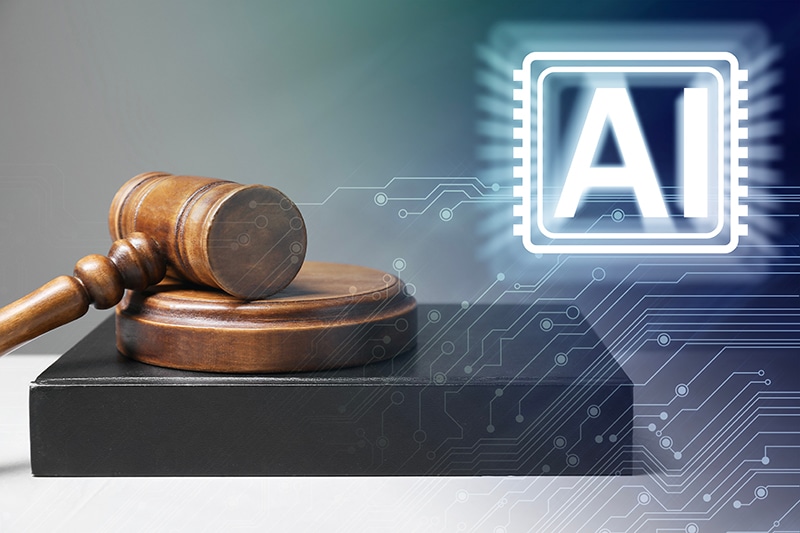Artificial intelligence (“AI”) use has rapidly intensified, with its developing sophistication and ability to generate content at an unprecedented pace, raising critical issues concerning ownership, infringement, and fair use. Below, we will list some key issues that have developed through the more use of AI
A central debate is whether AI companies can use copyrighted works to train their systems. Artificial intelligence, functioning like a human brain, requires vast amounts of information to develop content. This raises concerns about using copyrighted materials like books, articles, images, and music for training. Such use can constitute copyright infringement, which occurs when someone copies, shares, or modifies protected work without authorization.
The case of Thomson Reuters v. ROSS Intelligence exemplifies this: Thomson Reuters sued ROSS Intelligence for using Westlaw’s “headnotes and key numbers” to train its Artificial intelligence, arguing infringement. ROSS claimed the fair use defense allows their system to use Westlaw’s content. Fair use is a legal doctrine that allows limited use of copyrighted material without permission for things like criticism, commentary, news reporting, teaching, scholarship, or research. The court in Thomson Reuters v. ROSS Intelligence determined that Ross’s usage was not transformative and was not being used for the accepted uses of fair use. The court rejected ROSS’s fair use defense.
Another important question is authorship: who owns AI-generated works? U.S. copyright law requires human authorship for protection. Works solely created by Artificial intelligenceare deemed public domain. If a user provides specific prompts, the level of human creativity may determine ownership. However, without substantial human input, AI-generated content lacks copyright protection. This distinction is crucial as Artificial intelligence tools become more autonomous. (https://copyright.gov/ai/)
The issue of “deepfakes” has also emerged. Deepfakes are AI-generated videos, photos, or voice recordings that manipulate someone’s likeness or voice. These raise serious concerns about privacy, defamation, and reputation. While some deepfakes are used for entertainment, they can cause significant harm. For example, Hollywood actress Scarlett Johansson has recently spoken out against the misuse of her likeness in a deepfake video. This incident, where her image was manipulated within a video used to promote certain views, emphasizes the potential for Artificial intelligenceto be used in ways that violate an individual’s rights and create harmful misinformation. This incident and many others have raised concerns about the need of regulations surrounding the use of AI, and deepfakes. (https://www.bbc.com/news/articles/c0qwkdlxgxno)
U.S. government is now addressing these challenges. The House AI Task Force, House Judiciary IP Subcommittee, Senate Judiciary IP Subcommittee, and Senate AI Working Group are holding hearings on Artificial intelligence issues, pushing for transparency and accountability. Bills promoting fairness and reviewing AI training frameworks are also being introduced. These efforts aim to balance innovation with intellectual property rights in the rapidly evolving Artificial intelligence landscape.
If you have questions or would like to discuss how artificial intelligence may affect your business, please contact EPGD Business Law in Miami, Florida, at (786) 837-6787 or email us to schedule a consultation.


